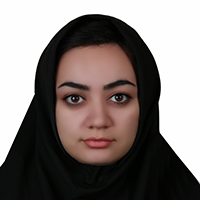Comparison of the Effectiveness of Transcranial Direct Current Stimulation (tDCS) and Computer-based Cognitive Rehabilitation on Improving Impulsivity in Children with Attention Deficit- Hyperactivity Disorder
The purpose of this study was to compare the effectiveness of Transcranial Direct Current Brain Stimulation (tDCS) and computer-based cognitive rehabilitation on improving impulsivity in children with attention-deficit/ hyperactivity disorder.
The current research design was quasi-experimental with pre-test-post-test and control group. 60 children with attention-deficit/ hyperactivity disorder were selected by purposeful sampling and randomly placed in three groups: experiment 1, experiment 2, and control (20 people in each group). Data were collected using Connors Parent Rating Scale (1978), Raven's Progressive Matrices Test (2000), and Barrett's impulsivity questionnaire (1995). The subjects of the first experimental group received Transcranial Direct Brain Stimulation and the second experimental group also received Captain Log's rehabilitation intervention. The control group did not receive any intervention. Data were analyzed with covariance analysis and Bonferroni's post hoc test.
The results showed that experimental groups had lower impulsivity compared with the control group. Also, by controlling the effect of the pre-test in the two experimental groups, there is a significant difference between the two methods of transcranial direct current brain stimulation and computer-based cognitive rehabilitation (P<0.05), and transcranial direct current brain stimulation is more effective in improving the impulsivity in children with attention-deficit/ hyperactivity disorder.
According to the results, it can be said that the intervention of transcranial direct brain stimulation and cognitive rehabilitation was effective in improving impulsivity in children with attention-deficit/ hyperactivity disorder. Therefore, both interventions can be used to improve impulsivity in these children.
-
The Effectiveness of Transcranial Magnetic Stimulation on Cravings and Anthropometric Indicators in Obese Women: A Quasi-Experimental Study
Seyed Mohsen Nemati, *, Parviz Porzoor, , Ghasem Fattahzade
Journal of Rafsanjan University Of Medical Sciences, -
Presenting the Smoking Tendency Model of Students Based on Emotion Regulation and Perceived Social Support with the Mediating Role of Academic Burnout
Seyfollah Aghajani, Seyedeh Khadijeh Amirian, Shayan Noori Lasaki, Roghayeh Khademi, Mohammad Zarei Nouroozi *
Social Psychology Research, -
Effectiveness of Transcranial Magnetic Stimulation on Attention Bias and Behavioral Inhibition in Obese Women: A Semi-Experimental Study
Seyed Mohsen Nemati, *, Parviz Porzoor, , Ghasem Fattahzade
Iranian Journal of Psychiatric Nursing, -
The Effectiveness of Positive Parenting to Mothers on Self-efficacy and Resilience of Children with Specific Learning Disorders
Afsane Shokri, Hir *
Journal of Learning Disabilities, -
The effectiveness of education based on resilience on the attitude of responsibility and academic self-regulation of students who are children of divorce
Seyfollah Aghajani *, Ali Salmani, Aysan Sharei
Journal of School Psychology, -
Comparison of Parenting Styles, Marital Satisfaction and Mental Well-being in Mothers with and without Stuttering Children
Hir, Alireza Moradian *, Pezhman Honarmand, Parviz Porzoor
Journal of School Psychology,






